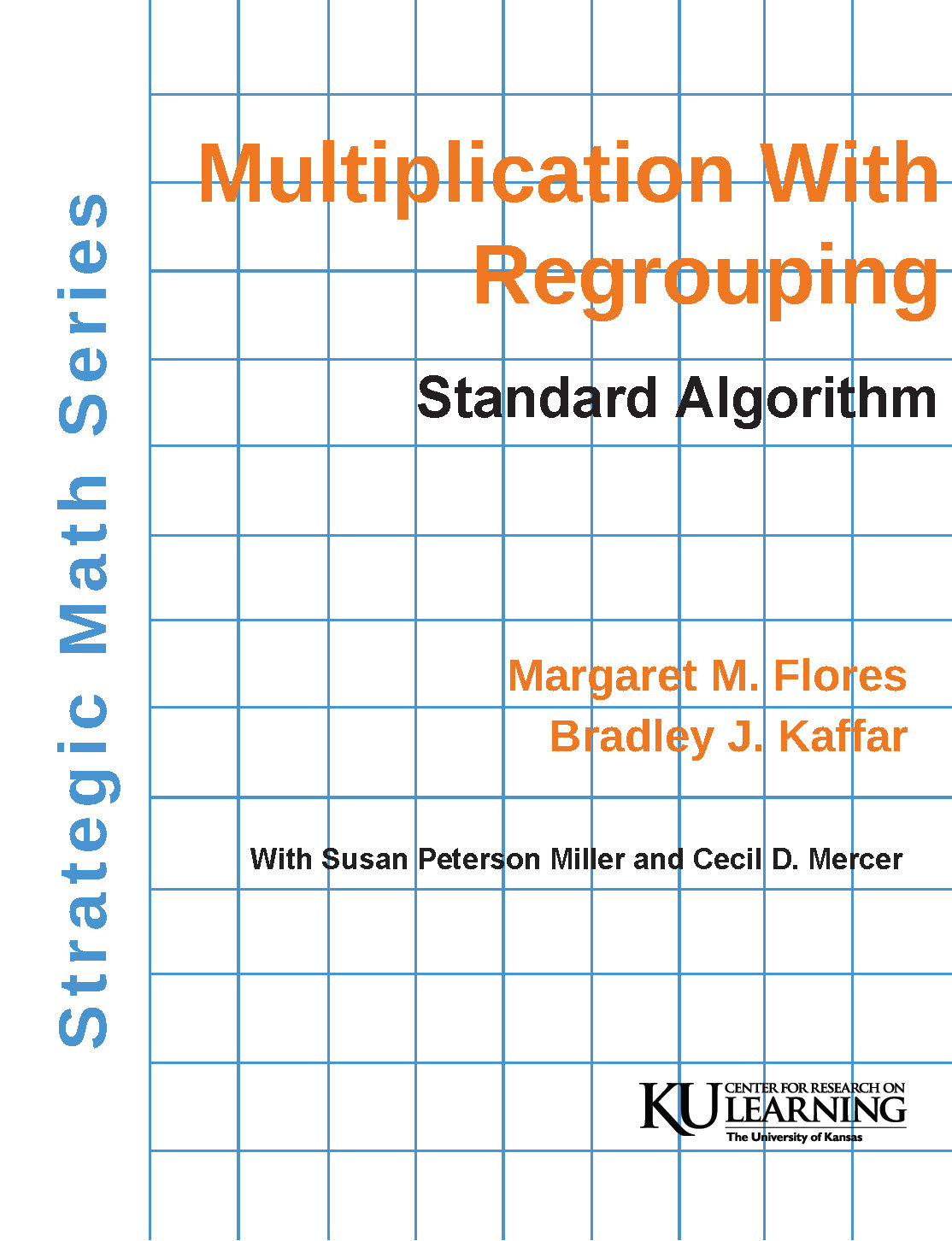
Publication Info: University of Kansas Center for Research on Learning 2018
Multiplication with Regrouping Standard Algorithm Resources:
VIDEO
- Multiplication with Regrouping Standard Algorithm Learning Sheet 3 DEMO Concrete Level - Margaret Flores
- Multiplication with Regrouping Standard Algorithm Modeling Lesson 7 - Margaret Flores
- How is Fluency Measured in Partial Products and Standard Algorithm
- 2021 SIMposium: Teaching Partial Products and Standard Algorithms with CRA and SIM - Flores
PPTs
MORE
- Manual Table of Contents
- list of Lesson Materials
- Introduction
- Access Learning Strategy Checklists
- Description of Multiplication with Regrouping Standard Algorithm from the SIM website
MICROCREDENTIALS
Stratenotes and Strategrams
Research:
Standard Algorithm Study: Flores, Hinton, Strozier (2012), (National Center on Intensive Intervention)
Related Article:
Bouck, E. C., Satsangi, R. & Park, J. (2017). The Concrete-Representational-Abstract Approach for students With learning disabilities: An evidence-based practice synthesis. Remedial and Special Education, 39(4) As researchers and practitioners have increasingly become interested in what practices are evidence based and for whom in education, different sets of quality indicators and evidence-based practice standards have emerged in the field of special education. Practices are commonly suggested as evidence based, even without a best evidence synthesis on the existing research, such as the case with the concrete–representational–abstract (CRA) instructional framework to support students with disabilities in mathematics. This study sought to support the classification of the CRA instructional framework as an evidence-based approach for students with learning disabilities by applying quality indicators and standards of evidence-based practice by Cook et al. (2014). Based on the application of the indicators and standards, the CRA instructional framework was determined to be an evidence-based practice for students with learning disabilities who struggle in mathematics relative to computational problems, such as addition, subtraction, and multiplication, largely with regrouping.
